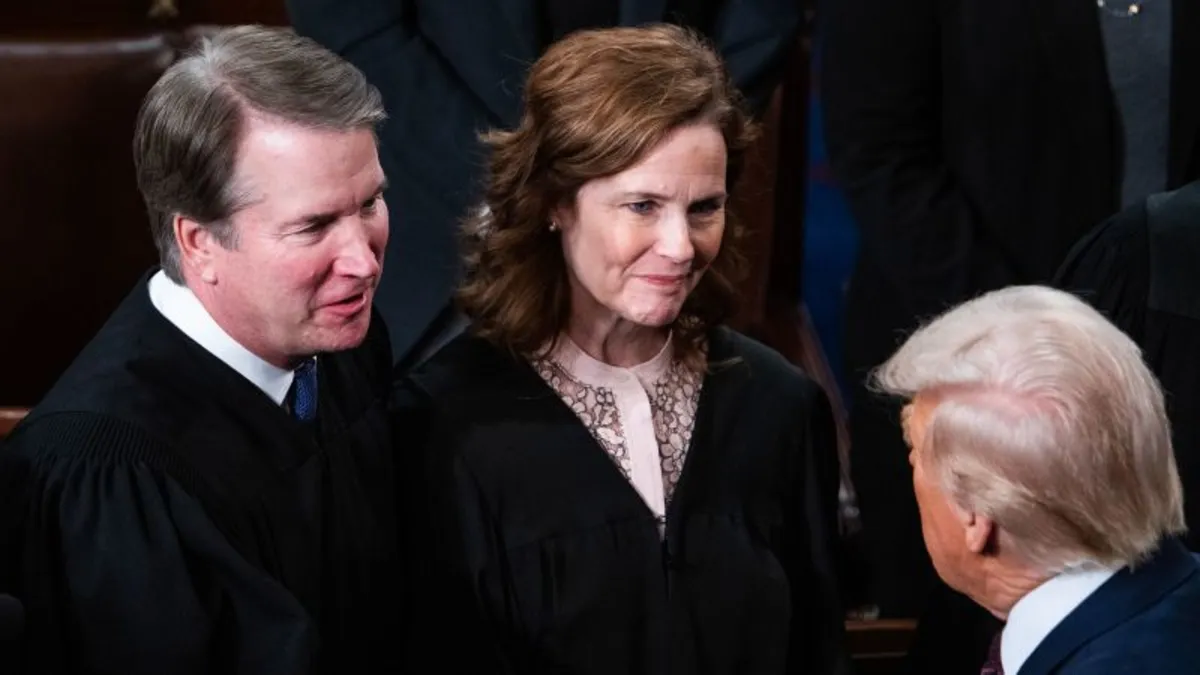
Former President Donald Trump has expressed private grievances regarding the Supreme Court justices he appointed, indicating that they have not fully supported his agenda. Sources close to the matter reveal that Trump has particularly directed his frustrations towards Justice Amy Coney Barrett, his most recent appointee. This ongoing dissatisfaction has been a topic of discussion for more than a year, reflecting a broader pattern of unrest among Trump's allies regarding the current judiciary's alignment with his policies.
In addition to Barrett, Trump has also voiced discontent about Justices Neil Gorsuch and Brett Kavanaugh. His concerns are fueled by feedback from his supporters, who have labeled Barrett as “weak” and criticized her rulings, claiming they diverge from her public persona during her nomination process in 2020. According to a senior administration official, Trump’s complaints are not limited to a single ruling; they encompass several instances where he feels the justices have fallen short.
In response to these grievances, Harrison Fields, principal deputy press secretary, emphasized that Trump remains supportive of the Supreme Court’s role in American democracy. Fields stated, “President Trump will always stand with the U.S. Supreme Court,” contrasting Trump’s respect for the court with the Democratic Party's alleged intentions to undermine its integrity through court-packing.
Trump's frustrations come amid a public dispute with the judiciary and the conservative legal establishment over various rulings. Recently, he criticized Federalist Society leader Leonard Leo, who was instrumental in helping Trump select judges for federal appointments, labeling him a “real ‘sleazebag’.” This public outburst highlights the growing tensions between Trump and the judicial system that he once sought to shape.
Trump's dissatisfaction with Barrett intensified following her vote against his plan to freeze nearly $2 billion in foreign aid. This decision sparked outrage among conservatives, with some commentators harshly criticizing her on social media. Following a ruling that allowed Trump's sentencing in a hush money case, Barrett's decisions continued to draw scrutiny.
Barrett's recusal from a significant case involving a Catholic charter school in Oklahoma has also drawn criticism. The Supreme Court's 4-4 split on this issue left the lower court's ruling intact, leading to allegations that her recusal could have broader implications for future cases. Critics, including Carrie Severino of the Judicial Crisis Network, have voiced concerns that her actions may undermine judicial principles.
Some of Trump’s allies have speculated that Barrett’s decisions may have been influenced by threats against her family, including a bomb threat directed at her sister. Trump has reportedly inquired about increasing Barrett’s security to ensure her comfort, illustrating his complicated relationship with his appointee amidst external pressures.
Despite privately airing his grievances, sources close to Trump assert that he does not wish to publicly attack Barrett. Following her contentious vote in March, Trump praised her intelligence and character, indicating his desire to maintain a level of respect for the Supreme Court. A senior White House official remarked that Trump has refrained from publicly criticizing his appointees, aiming to avoid further fracturing the conservative judicial coalition.
Despite the criticisms, Justice Barrett continues to align with conservative rulings, consistently voting with the court's most conservative justices, Clarence Thomas and Samuel Alito. Data shows that she voted with them over 80% of the time during the last term, indicating her reliability in supporting conservative outcomes. However, her occasional deviations from strict conservatism make her a pivotal figure in the Supreme Court landscape.
As the political landscape evolves, Barrett's role and decisions will continue to be scrutinized, particularly as Trump navigates his relationship with the judiciary he once sought to reshape.